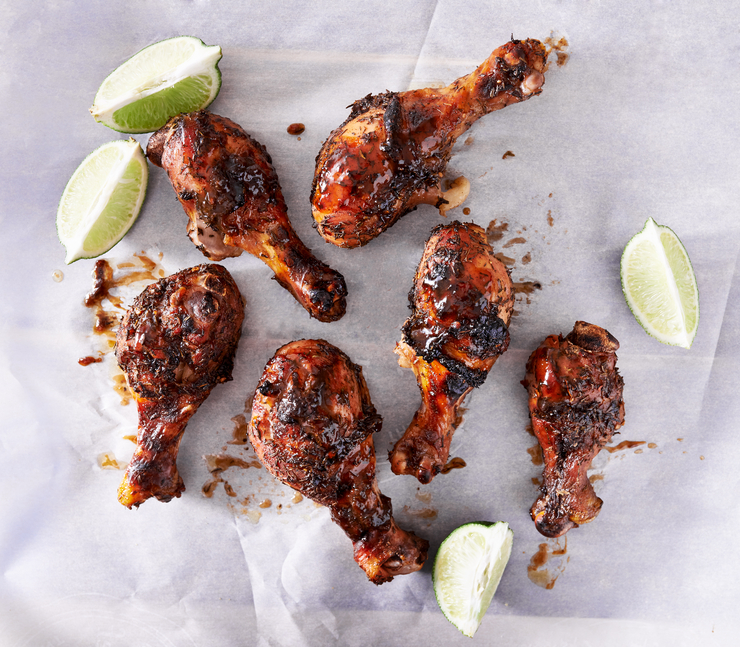jerk
(noun, verb)
/dʒɜrk/
 LISTEN
LISTEN


Jamaican jerk chicken
A jerk is any sudden movement like a twist, a pull, or a push. It’s also an involuntary and sudden muscle movement. Colloquially, and mainly in the US, we call someone who is inconsiderate a jerk. As a verb, to jerk means ‘to pull, twist, or push’ with a sudden movement and also ‘to make an uncontrollable sharp movement.’ To jerk also means ‘to preserve meat by cutting it into strips and curing by drying in the sun.’
Example sentences
- The climber gave the rope a jerk to signal that he wanted to be pulled back up.
- Ann's muscles gave a sudden jerk.
- I can't stand that guy; he's such a jerk!
- Angrily, George jerked the lid off the jar.
- The car jerked sideways.
- Sailors used to jerk their meat so that it wouldn't rot on long sea journeys.
Words often used with jerk
jerk off (slang, vulgar, mainly US): masturbate. Example: “Teenage boys spend a lot of time jerking off in their rooms.”
beef jerky: dried, preserved beef. Example: “I always take beef jerky to snack on when I go hiking.”
In pop culture
Jerk is a dance in which the dancers alternately thrust out their pelvises and their shoulders. It comes from the twist but it’s now associated with hip hop. The verb to jerk means to dance in this way.
Did you know?
Jerk is also the name of a type of seasoning used in Jamaican cooking or a style of cooking using this seasoning. Meat is rubbed with or marinated in the spice mix before cooking. Traditionally, jerk seasoning was used on chicken and pork, but these days you can find seafood, vegetables, and even tofu cooked this way too.
Other forms
jerker (noun), jerky (adjective), jerking (adjective), jerkily (adverb), jerkingly (adverb)
Origin
Jerk first appeared in English in the mid-16th century as a verb, meaning ‘to lash or strike, as with a whip.’ A few decades later, the meaning widened to ‘pull sharply or suddenly.’ The noun for this meaning closely followed the verb. The verb meaning related to involuntary body movements dates to around the year 1600, but the noun for the same meaning was not used until the early 19th century. The dance mentioned above appeared in the 1960s, and is derived from this sense. The origin of the word is not known, but it may come from yerk, meaning ‘to draw stitches tight’ (shoemaker’s term), thus making the shoe ready to wear, from the Middle English yerkid, an adjective meaning ‘pulled tight’ (early 15th century), or the Middle English verb ferken ‘to move hastily or drive something forward,’ and these may come from the Old English verbs fercian ‘to proceed,’ or gearcian, ‘to prepare, make ready.’ Finally, the sense used to describe a person appeared in the 1930s in America, and probably originated in carnival slang, but its origin beyond that is a mystery.
Word of the Day is released Monday through Friday.



